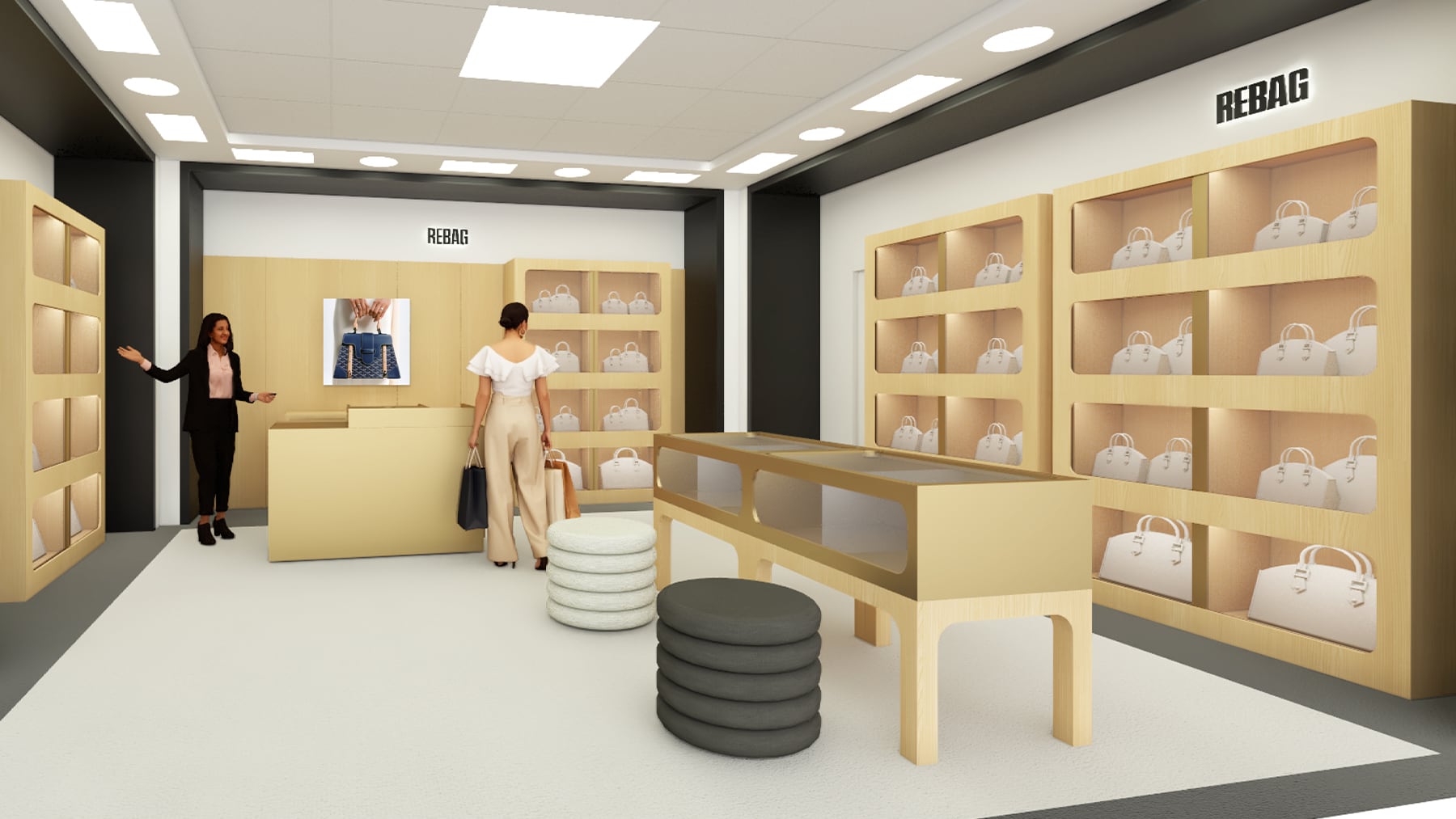
Bloomingdale’s customers will now be able to shop from a selection of pre-owned luxury handbags, watches and fine jewellery, courtesy of online reseller Rebag, the two companies announced Thursday.
This assortment of products will be available online and in five Bloomingdale’s locations — including Short Hills, New Jersey; Boca Raton, Florida; and Los Angeles — as shop-in-shops.
Shoppers will also be able to sell their own pre-loved pieces and receive offers from Rebag, which offers a quote and immediate payout for accepted products. The partnership is designed to meet customer needs and “brings a new set of ultra-luxury brands to Bloomingdale’s,” Jennifer Jones, general merchandise manager of women’s accessories at the retailer, said in a statement.
As the fashion resale market continues to swell, driven by young consumers and changing attitudes around luxury fashion, major retailers including Walmart and Amazon have inked similar partnerships with various secondhand platforms in recent years. In 2019, Neiman Marcus purchased a minority stake in Fashionphile, a Rebag competitor. What Goes Around Comes Around, one of the first luxury handbag resellers on the scene, sells its assortment to Amazon, Walmart.com and Dillard’s, another American department store chain.
Rebag also counts Moda Operandi and fellow online reseller ThredUp as selling partners. Two of its three New York City stores closed recently as the company moves to focus on these partnerships, a spokesperson said.
Today, the online resale space is growing crowded and competitive. It’s still incredibly difficult to operate profitably; just earlier this year, The RealReal posted positive quarterly earnings before interest, tax, depreciation and appreciation, for the first time since its IPO in 2019. In 2022, peer-to-peer fashion marketplace Poshmark, for instance, was sold to a South Korean tech company just a year and a half after it went public, at half the valuation of its IPO.
Learn more:
Why Brands Are Racing Into Resale — in Five Charts
Hundreds of fashion companies are looking to build their own resale channels, giving rise to a new class of B2B start-ups that aim to help them navigate the nascent industry.


